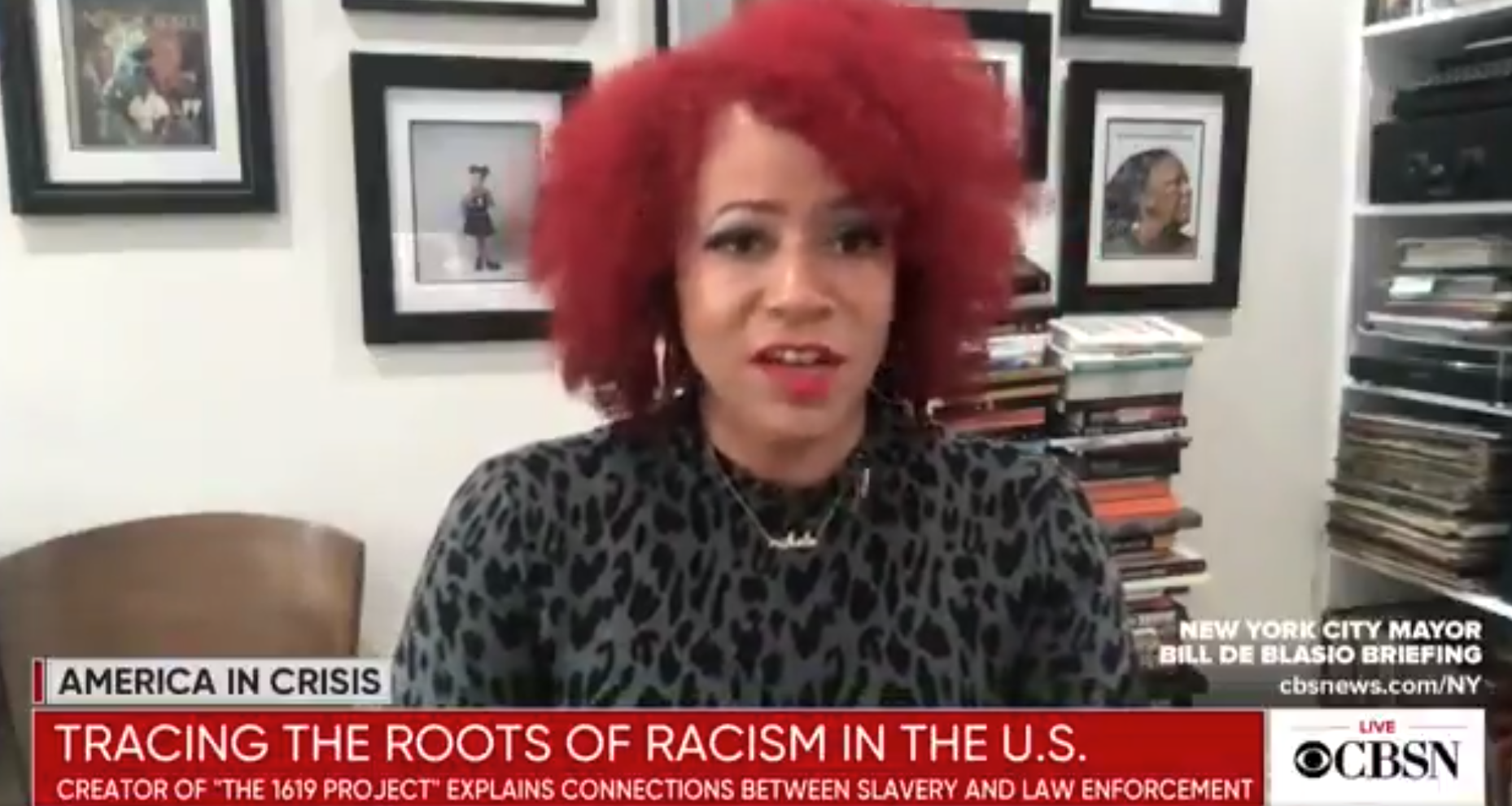Watch The New York Times' Nikole Hannah-Jones succinctly trace police brutality back to slavery


A free daily email with the biggest news stories of the day – and the best features from TheWeek.com
You are now subscribed
Your newsletter sign-up was successful
It's been a week since George Floyd's death in police custody sparked worldwide protests against systemic racism, specifically within law enforcement and against black men. But the legacy of racist policing stems back much, much further, The New York Times Magazine's Nikole Hannah-Jones explained to CBS News on Tuesday.
As Hannah-Jones, creator of the Times' 1619 project, noted, "modern policing," particularly in the south and parts of the northeast, "actually evolved out of the slave patrols." They "deputized white Americans to police enslaved communities, to ensure slaves were only in the places they were allowed, to put down slave insurrections," and gave them practically unlimited power to stop, question, and even "execute enslaved people," Hannah-Jones continued.
"So we have a long history of devaluing black lives, of allowing white police to kill black Americans," even for minor crimes, Hannah-Jones said. And while "we want to always say that slavery was a long time ago ... what we see today is a direct lineage from that idea that black lives are worth less than white lives," she finished. Watch Hannah-Jones' whole explanation below. Kathryn Krawczyk
The Week
Escape your echo chamber. Get the facts behind the news, plus analysis from multiple perspectives.

Sign up for The Week's Free Newsletters
From our morning news briefing to a weekly Good News Newsletter, get the best of The Week delivered directly to your inbox.
From our morning news briefing to a weekly Good News Newsletter, get the best of The Week delivered directly to your inbox.
A free daily email with the biggest news stories of the day – and the best features from TheWeek.com
Kathryn is a graduate of Syracuse University, with degrees in magazine journalism and information technology, along with hours to earn another degree after working at SU's independent paper The Daily Orange. She's currently recovering from a horse addiction while living in New York City, and likes to share her extremely dry sense of humor on Twitter.
